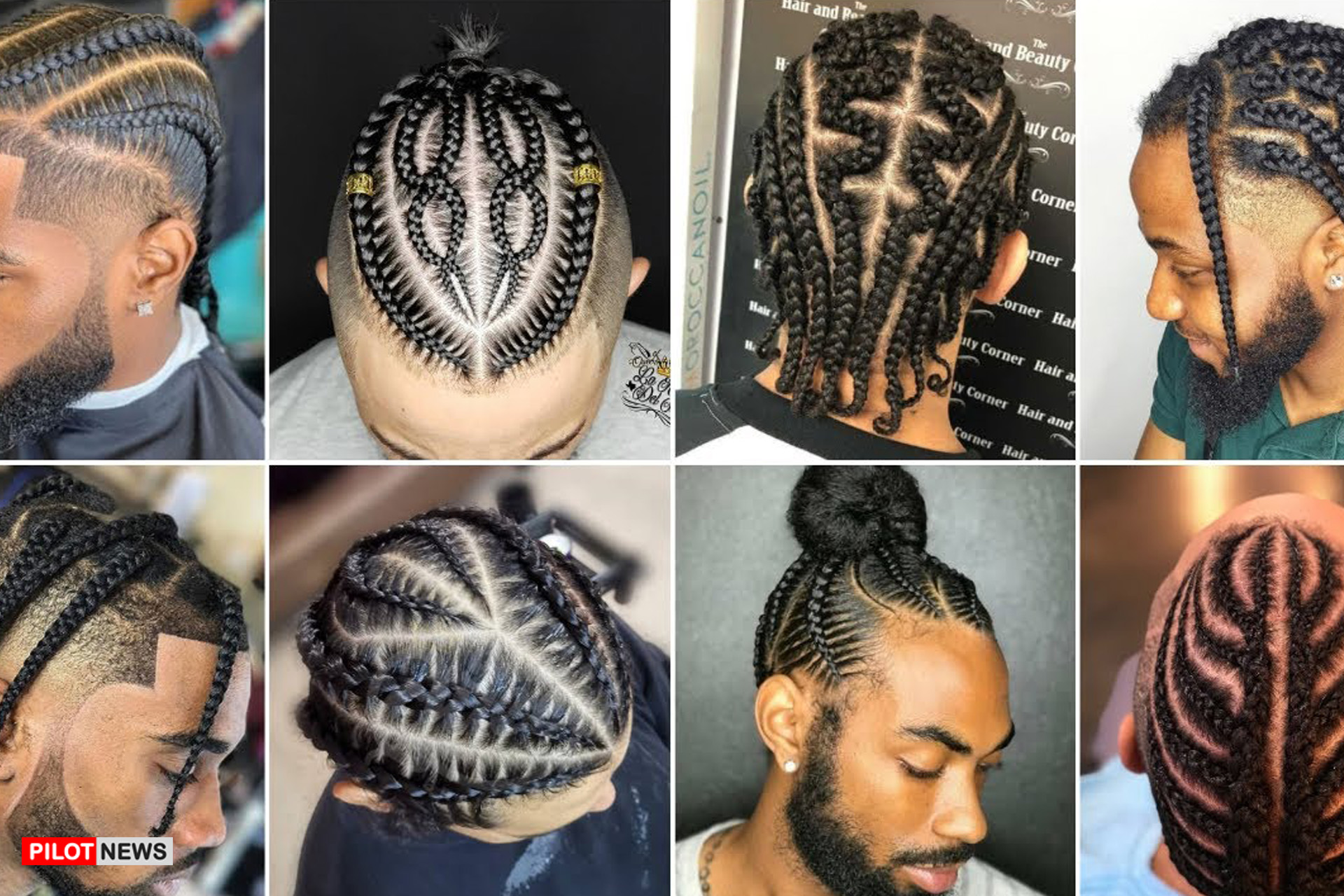Traditions and cultural norms are part of everyday life but are not expected to affect freedoms, rights, or intra-personal choices. But for Samuel Edeh, his decision to allow a personal revolution to take place on his head by plaiting his hair has come with insurmountable push backs.
He is a footballer who commands professional and individual attention with his looks and has found genuine inspiration in his hair being plaited.
However, his journey towards personal expression has not been without its hurdles, as he faces discrimination for his nonconventional choice.
“ I have been growing my hair since childhood”, he told Prime Progress.
The 18-year-old explained that his experience of not keeping the normal haircut has put him in the negative spotlight. He said people’s attitude towards him has been too confrontational.
In Nigeria, males having certain hairstyles drilled into their heads is a nonconventional taboo. There’s even an aphorism “Only bad boys grow their hair,” which makes many parents to discourage their wards from doing so.
But in a real sense, plaiting hair has no physical or or medical harm on men.
What’s the difference?
Hair grows the same, whether it is kept long, or short. Hair, being non-living, does not impact a person’s overall health. For long hair to be maintained, the hair is simply not cut. Short hair on the other hand is cut.
This personal decision of nut cutting one’s hair has changed the general perception towards Edeh.
“People say a lot of negative things when they see a young guy growing or styling his hair; they believe that the person is immoral and unfortunate. They make me feel bad- it’s not like their comments will stop me from growing my hair, but they judge me wrongly. They see me from a perspective that is not true. Oftentimes, after these people get to talk with me, they learn that I am not as they thought; that I am not a bad person.”
According to Edeh, the negative remarks he gets aren’t limited to men alone. Some girls view him as a playboy; an irresponsible person who pursues a life of pleasure without attachment.
Prime Progress conducted an interview for a number of ladies aged 18-26 about their views on males growing long hair. 70% indicated apathy, 30% indicated admiration.
Juliet Owums is one of those who detests men plaiting their hair because it’s only meant for celebrities. She doesn’t reckon with men plaiting hair who aren’t in the celebrity class.
“I love it. I just admire people who are expressive and open to new things,” Stephanie Onu put forward.
For Josephine Nweke, she just doesn’t like it it on men for reasons she can’t even explain. In truth, virtually all of those who chide men that keep long hairs have no specific reason.
Call for change
It is time to celebrate personal expression, break down stereotypes and foster an inclusive society where individuals are valued for who they are, not how they look.
In embracing individuality; each person is unique, and their choices regarding personal appearance should reflect their true selves. Long hair can be a powerful form of self-expression that allows men to showcase their personality and identity. It is a canvas for creativity, a way to stand out.
Advocating for men to grow their hair long is a step toward breaking down harmful gender stereotypes. Long hair on men challenges preconceived notions about masculinity, and reminds us that there is no one-size-fits-all definition of what it means to be a man.
It encourages society to get rid of vague ideas about how men should look, act, and express themselves.
Accepting long hair on men fosters an inclusive society where diversity is celebrated. It encourages open-mindedness, tolerance, and empathy. By embracing unconventional grooming choices, we move toward a world where people are valued for who they are, not how they look.
Advocacy for accepting long hair on men is not just a call for change; it’s an invitation for respect. Respect for individuals’ choices, identities, and cultures. It is a way of saying that a person’s worth is not determined by their hairstyle but by their character, actions, and contributions to society.
Ultimately, embracing long hair as a choice for Nigerian men is not just changing fashion trends; it’s about reshaping societal values. A society that appreciates diversity, unique individualities, fosters inclusion and breaks gender stereotypes should be created.
It is time for Nigeria to lead the way in breaking down stereotypes and embracing the beauty of individuality, one strand of hair at a time.
Samuel Edeh, an 18-year-old Nigerian footballer, faces significant discrimination for his choice to plait his hair, a nonconventional style for men in Nigeria. Despite the societal backlash, Edeh remains committed to his personal expression, though he has experienced negative judgments and confrontations. In Nigeria, long hair on men is often stigmatized, linked to negative stereotypes, and seen as inappropriate outside celebrity circles.
Interviews reveal mixed opinions among women aged 18-26, with 70% indifferent and 30% admiring the hairstyle choice. Advocates emphasize the need to celebrate individuality and break down gender stereotypes, arguing that hair length should not define one's character or morality. Embracing long hair for men is seen as a step towards a more inclusive, diverse, and respectful society that values personal expression and creativity.
The call for change is not just about fashion but about reshaping societal values towards greater tolerance and understanding, highlighting that a person's worth lies in their character and contributions, not their appearance.






